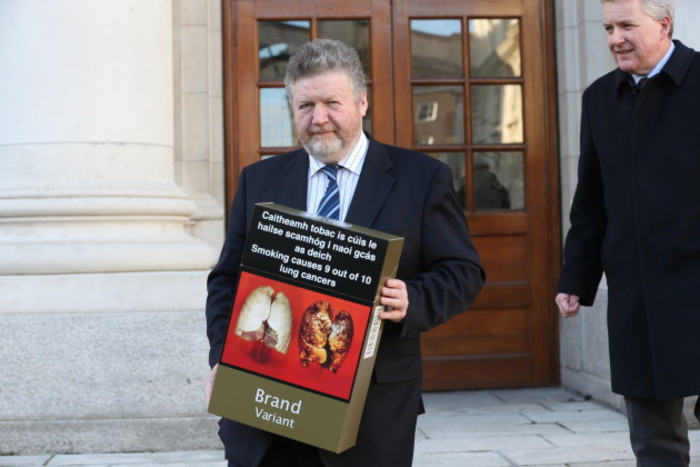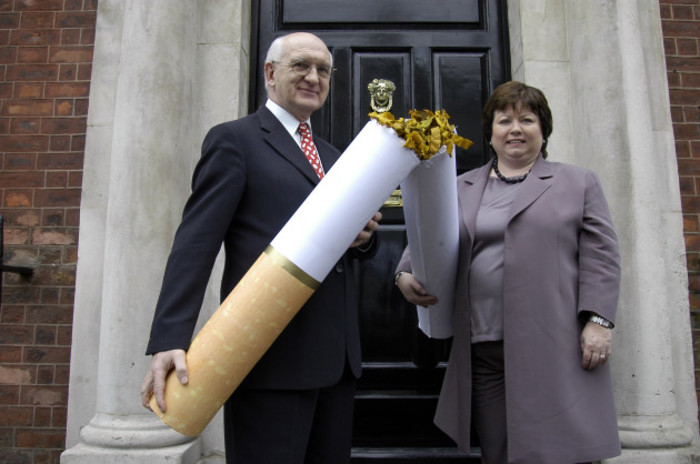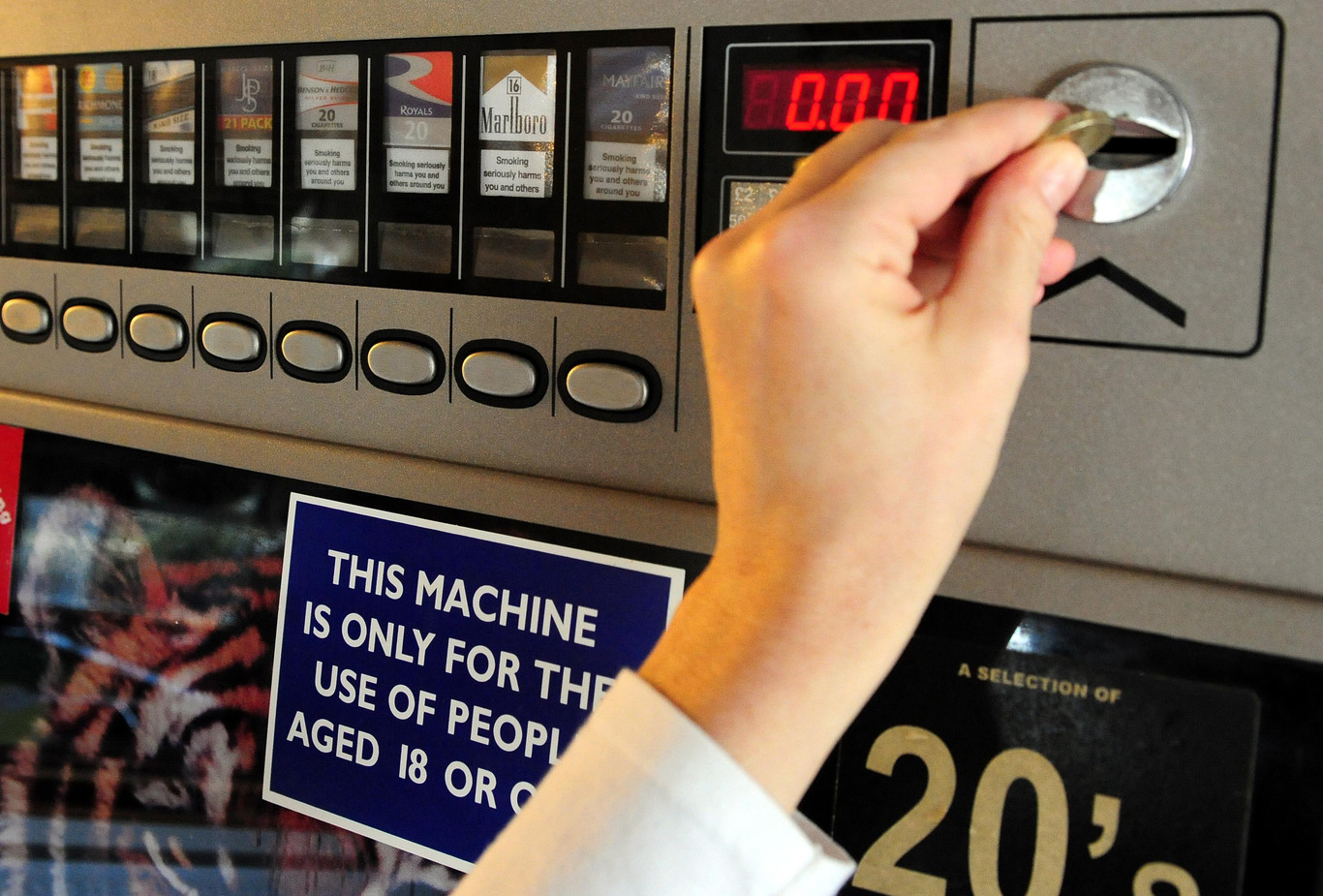A court challenge looms as the government moves to ban cigarette vending machines
New legislation being drafted will see the machines banned in Ireland.
A LEADING SUPPLIER of cigarette vending machines has said that it will take a legal challenge against the government if it brings in a proposed ban on those machines.
The Department of Health has confirmed that it is in the process of drawing up legislation to ban the sale of tobacco products from vending machines.
Cigarette vending machines are currently only present in pubs and nightclubs. There are about 6,000 in total around the country and the industry employs close to 150 people.
“Vending machines by their very presence help to advertise and promote tobacco products,” the department said in a statement.
“It is proposed to extend the existing ban on self-service vending machines for tobacco products to all locations.”
However, Ireland’s biggest supplier of tobacco machines – Limerick-based Tobaccoland – said that the legislation would put a lot of people out of work and that they would mount a legal challenge should it be introduced.
Speaking this morning on a segment on RTÉ’s Morning Ireland, James Walsh, the founder of Tobaccoland, said that it would bring a challenge to the courts if necessary.
“We will bring it to Supreme Court,” he said.
“In there we will get a fair hearing.”
The legislation is part of the government’s plan to have a tobacco-free Ireland by 2025 – a proposal which was first launched by former Health Minister James Reilly in 2013 and then taken up by successive ministers.
 Former Children's Minister James Reilly
Former Children's Minister James Reilly
Walsh said that if Ireland was tobacco-free by 2025 he would accept that and move on but that if there was still an industry he didn’t want to be pushed out.
“I don’t want to stay in business if that’s the way it’s going to be,” he said.
“But I don’t want to be put out of business if there’s still going to still be a business there in 2025.”
Walsh said that his company sells €1.5 million worth of cigarettes every week and 140 million cigarettes every year. The company employs 23 full-time staff.
Tobacco free Ireland
Luke Clancy, director general of the Research Institute for a Tobacco Free Society, told the programme the ban would be necessary to lower the numbers of people smoking.
“It is an important issue,” he said.
“It sounds anachronistic to have vending machines when we’re banning point-of-sale advertising, we’re introducing plain packaging, we’re putting price up and we’re trying to eliminate and de-normalise smoking.
“And this is a further step which is important as part of a package.”
 Luke Clancy with former Health Minister Mary Harney
Luke Clancy with former Health Minister Mary Harney
Also speaking on the programme, Cormac Dunne of the Irish Cigarette Machine Operators Association said that a ban didn’t need to brought in in Ireland as there was already a strict restriction on underage selling here.
Vending machines are operated by people obtaining a token from a bartender in a pub or club and then using that to activate the machine. Dunne said that this ensured that underage people would not use the machines.
“The barman is responsible for deciding who gets alcohol, so it’s probably fair to say that he’s a reasonable custodian of the cigarette machine token,” he said.
The spokesperson for the Department of Health said that the ban on vending machines had already been introduced in 15 EU member states and had been successfully defended in court in England.
“Fifteen European Member States including France, Greece, Hungary, Poland and the UK have enforced similar measures prohibiting the sale of tobacco products from self-service vending machines,” the spokesperson said.
“Specifically in the UK, England prohibited the sale of tobacco from such machines with effect from October 2011, after the successful defence of a legal challenge from the tobacco industry.
“This proposal is in line with policy contained in Tobacco Free Ireland and the WHO Framework Convention on Tobacco Control, which encourages parties to the convention to introduce a total ban on vending machines in the context of protecting young people.”
An introduction of plain-packaging on tobacco products in Ireland was first touted in 2014, but the laws allowing this measure to come into force have been delayed.
Written by Cormac Fitzgerald and posted on TheJournal.ie






